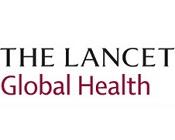
We are pleased to share a new article co-authored by ACBS members Felicity Brown and Ross White that was published in Lancet Global Health. Wietse A Tol, Marx R Leku, et al. (2020) Guided self-help to reduce psychological distress in South Sudanese female refugees in Uganda: a cluster randomised trial. Lancet Global Health, Volume 8, Issue 2, Pages e254–63.
The article states “Self-Help Plus is an innovative, facilitator-guided, group-based self-help intervention that can be rapidly deployed to large numbers of participants, and resulted in meaningful reductions in psychological distress at 3 months among South Sudanese female refugees” and “Self-Help Plus is based on Acceptance and Commitment Therapy (ACT)”
ACBS Fellow Steven C. Hayes believes that this is “in my opinion the most important study yet done on ACT.” Hayes further explained “The study was done by the World Health Organization (WHO) on the psychological health of South Sudanese refugees in Uganda...The program targeted psychological flexibility using illustrations and audio-recordings. It was designed to be used within small groups conducted by indigenous health workers with minimal training for populations that may be illiterate...A very brief ACT-based intervention led to a variety of positive outcomes in areas such as depression and PTSD with effect sizes at a 3 month follow up that match those you see in privileged countries using self-help methods.”
Wietse A Tol, Marx R Leku, Daniel P Lakin, Kenneth Carswell, Jura Augustinavicius, Alex Adaku, Teresa M Au, Felicity L Brown, Richard A Bryant, Claudia Garcia-Moreno, Rashelle J Musci, Peter Ventevogel, Ross G White, Mark van Ommeren (2020) Guided self-help to reduce psychological distress in South Sudanese female refugees in Uganda: a cluster randomised trial. Lancet Global Health, Volume 8, Issue 2: e254–63
Abstract
Background
Innovative solutions are required to provide mental health support at scale in low-resource humanitarian contexts. We aimed to assess the effectiveness of a facilitator-guided, group-based, self-help intervention (Self-Help Plus) to reduce psychological distress in female refugees.
Methods
We did a cluster randomised trial in rural refugee settlements in northern Uganda. Participants were female South Sudanese refugees with at least moderate levels of psychological distress (cutoff ≥5 on the Kessler 6). The intervention comprised access to usual care and five 2-h audio-recorded stress-management workshops (20–30 refugees) led by briefly trained lay facilitators, accompanied by an illustrated self-help book. Villages were randomly assigned to either intervention (Self-Help Plus or enhanced usual care) on a 1:1 basis. Within 14 villages, randomly selected households were approached. Screening of women in households continued until 20–30 eligible participants were identified per site. The primary outcome was individual psychological distress, assessed using the Kessler 6 symptom checklist 1 week before, 1 week after, and 3 months after intervention, in the intention-to-treat population. All outcomes were measured at the individual (rather than cluster) level. Secondary outcomes included personally identified problems, post-traumatic stress, depression symptoms, feelings of anger, social interactions with other ethnic groups, functional impairment, and subjective wellbeing. Assessors were masked to allocation. This trial was prospectively registered at ISRCTN, number 50148022.
Findings
Of 694 eligible participants (331 Self-Help Plus, 363 enhanced usual care), 613 (88%) completed all assessments. Compared with controls, we found stronger improvements for Self-Help Plus on psychological distress 3 months post intervention (β –1·20, 95% CI –2·33 to –0·08; p=0·04; d –0·26). We also found larger improvements for Self-Help Plus 3 months post-intervention for five of eight secondary outcomes (effect size range –0·30 to –0·36). Refugees with different trauma exposure, length of time in settlements, and initial psychological distress benefited similarly. With regard to safety considerations, the independent data safety management board responded to six adverse events, and none were evaluated to be concerns in response to the intervention.
Interpretation
Self-Help Plus is an innovative, facilitator-guided, group-based self-help intervention that can be rapidly deployed to large numbers of participants, and resulted in meaningful reductions in psychological distress at 3 months among South Sudanese female refugees.
Funding
Research for Health in Humanitarian Crises (R2HC) Programme.
Article Info
Published: February 2020
DOI: https://doi.org/10.1016/S2214-109X(19)30504-2
Copyright © 2019 World Health Organization
